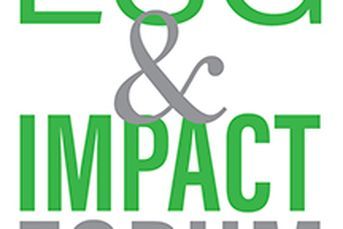Bernie Clark and Walt Bettinger on issues facing the advisory business
Bernie Clark and Walt Bettinger talk about their views on artificial intelligence, robos, HSAs and millennials
https://www.investmentnews.com/wp-content/uploads/assets/graphics src=”/wp-content/uploads2017/12/CI1136431219.JPG”
One of the most popular — and always anticipated — sessions at IMPACT each year is the conversation between Bernie Clark, executive vice president and head of Schwab Advisor Services, and Walt Bettinger, president and chief executive officer of The Charles Schwab Corporation. This year’s conversation touched on several topical issues, all raised by audience members who sent their questions to Bernie Clark’s tablet. Edited highlights of audience questions and the executives’ responses appear below.
How is Schwab planning for the generational wealth transfer to millennials, who may behave differently from their parents?
WB: Millennials have behavioral differences, and technology certainly plays a big role. But at the same time, we also have to remember what’s not likely to change. People have to trust their advice provider, and while technology is powerful, trust can only come from communication, vulnerability and interaction. So when I think about millennials, yes, they will be more technology-oriented, and yes, we’re putting a lot of emphasis there, but people still will be the determining factor in long-term success.
BC: We should remember that millennials grew up differently from us. We’re comfortable engaging with the technologies we grew up with, just as they are with the technologies they grew up with.
What is Schwab doing in the area of cybersecurity?
WB: Guaranteeing cybersecurity is close to impossible. It’s the key business challenge of our era, and one on which we spend hundreds of millions of dollars a year. We’re very hesitant to talk in detail about many of the things we do because the bad guys are listening all the time and are remarkable at taking bits of information and piecing them together to try to find vulnerabilities.
But as problematic as cybersecurity is at a global level, with criminals trying to get into large companies, it is just as critical for advisers and their clients. The fact that people so often use the same simple logins and passwords on multiple sites is a problem, because that makes it difficult for you — and for us — to know whether we’re actually interacting with the client or someone we don’t want to be interacting with. The days of login and password are going away, and we’re headed in different directions — using biometrics, scanning, real-time, one-time passwords — which will become the reality of how we interact with clients so we can know who we’re actually talking to.
What do you think about Health Savings Accounts?
BC: I mentioned them in my opening remarks and think they have the potential to be a big part of our future.
WC: We all recognize that the healthcare system, or at least the financing of it, in our country has challenges, and that there needs to be a greater movement toward accountability at all levels for what we spend, how we spend it, the decisions we make, and the extraordinary disparity in costs for similar procedures, which generally doesn’t exist in most other parts of our economy. So with more accountability and responsibility placed on individuals around the financial part of their healthcare, HSAs are going to play a bigger and bigger role. In fact, our view is that everyone will have HSA accounts. They will be completely portable, they will have every investment option available to them, and we’ll have them from the day we start our first job, if not sooner, and we’ll use them throughout our lifetime.
Discuss the impact of artificial intelligence.
BC: Many of the artificial intelligence tools we’ve seen as being on the horizon over the past couple years, including robo models, are now here. But we’re still just at the beginning.
WC: That’s true. Yet we have to remember that whether it’s AI in a robo or in operations or in any of the other ways we leverage it, there still will have to be a balance of people involved in the process. Pure technology can create significant problems, because if you have even a small coding error inside something and there’s the assumption that the technology will do it all and that no one ever has to be paying attention, you get small errors that can compound into bigger, and bigger, and bigger errors.
BC: Are you pleased with our robo offerings?
WC: The way you evaluate that is whether the clients are pleased. When we introduced Intelligent Portfolios, everyone asked about our goals and objectives for the program. We would always answer that we don’t do goals at Schwab. We design things and put them out there. If clients use them, that’s the best communication back to us. If they don’t, then there’s a problem and we go back and make adjustments. But certainly as we approach $25 billion, clients seem to have been very pleased with using either the institutional or the retail version of Intelligent Portfolios.
How can firms help develop the next generation of advisers?
BC: We’re doing a ton of work with universities and have developed several programs, including our Executive Leadership programs that many of you have taken advantage of. And I’d be remiss if I didn’t mention that advisers must continue to become more diverse in gender, age and ethnicity. It’s part of the future. Millennials will be 40% more diverse. If we don’t emulate what’s happening in the marketplace, we won’t be the leaders.
What’s your view on industry consolidation?
WC: The investment services level certainly appears to have excess capacity, where you see commoditization of price followed by pricing reductions. So you would have to assume that there will be ongoing consolidation within our space. That’s likely to be driven largely by organizations whose revenues depend more on the areas where commoditization and downward price pressure is occurring. We will continue to look very closely at every opportunity that comes along, both at the economics and whether we also see a strategic fit. We view the idea of acquiring another firm simply to fire everyone and acquire its clients as the strategy of firms that may face challenges in revenue growth. So we’re probably not as excited about that kind of acquisition. We’re more apt to look at acquisitions where there’s a strategic fit.
BC: Of the total of about 16,000 advisers with $4.5 trillion in assets, we have direct relationships with between 7,000 and 8,000. And yet the number of deals that get done on any given year is only about a hundred and they’re very strategic in nature. Culture is incredibly important in how things get done. One thing that has surprised me is that I thought I’d see a lot more consolidation among smaller firms due to the pressures of cost and regulation, yet we’re seeing the big firms come together. That tells me it’s strategic. Billion-dollar firms are joining billion-dollar firms and not taking them over, coming together to make even a more powerful resource. But that said, I don’t see an industry that one day will have just five large firms.
Learn more about reprints and licensing for this article.






